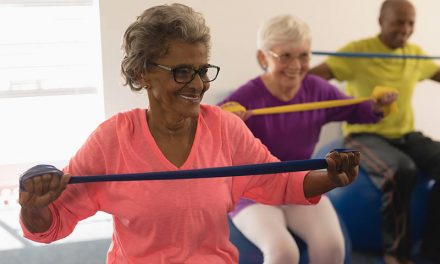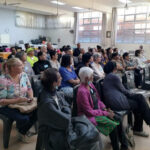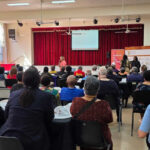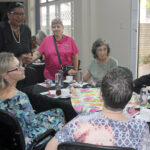The Love Languages of elders: rethinking care and connection
In a recent conversation, a colleague shared a simple yet profound insight: “Transport is the love language of our residents.” At first, it seemed like a practical observation – after all, transportation enables independence and connection. But her words carried a deeper truth: when we provide transport to our elders, we aren’t just meeting a logistical need; we’re showing love and respect through action.
This made me think about the broader concept of love languages –the ways we express and experience love – and how it could help reframe how we approach ageing and elder care.
The Love Language of Integrity
Not long ago, I attended the AGM of one of our residential units. During the meeting, a resident raised a concern, and I committed to following up with her personally to ensure it was addressed. True to my word, I scheduled a visit a few days later to check in on her.
When I arrived, she expressed her appreciation, not just for the resolution of her concern, but for the act of following through. She remarked, “After all, it’s about having integrity.”
Her comment stayed with me. In that moment, I realized that doing what you say you will do is also a love language. For our elders, integrity is an expression of care – it tells them they matter, their voices are heard, and their trust is valued.
The many Love Languages of Elders
Gary Chapman’s concept of love languages – acts of service, quality time, words of affirmation, gifts, and physical touch – provides a meaningful framework for understanding connection. When applied to older people, these languages take on profound significance:
- Acts of Service: Offering transport, assisting with daily tasks, or resolving concerns communicates care in action.
- Quality Time: Sitting down for a meaningful conversation or simply being present shows they are valued.
- Words of Affirmation: Kind words or recognizing their contributions can affirm their worth.
- Gifts: Small, thoughtful gestures – like a treat or a personal note – can bring joy.
- Physical Touch: A warm handshake or hug can offer comfort and connection.
When we align our care practices with these expressions, we move beyond meeting needs to creating connections that resonate on a human level.
Reimagining Care with Love
Reframing care as a series of love languages challenges us to shift from transactional relationships to meaningful ones. What we do – and how we do it – becomes an opportunity to say, “You are seen, valued, and cared for.”
Here’s how we can start:
- Ask and Listen
Every individual experiences love differently. By understanding what makes someone feel cared for, we can tailor our approach to their preferences. - Follow Through
Integrity is a universal love language. When we make a commitment and follow through, we build trust and deepen relationships. - Foster Connection
Create opportunities for elders to engage with their communities, families, and peers in ways that bring them joy and meaning. - Celebrate Their Value
Acknowledge their stories, contributions, and unique legacies. Validation is a powerful form of affirmation. - See the Bigger Picture
Everyday actions—providing transport, resolving concerns, or simply sharing a moment—are all expressions of love.
Love as the Heart of Care
When we view elder care through the lens of love languages, we transform everyday interactions into opportunities to connect deeply. This perspective enriches not only the lives of those we care for but also our own understanding of what it means to serve with dignity and empathy.
What would happen if we all paused to ask: What is the love language of the elders in my life? How can I speak it fluently?
Let’s embrace this challenge and build a culture where ageing is met with compassion, connection, and care.






 Thriving through 2025 – a toast to life
Thriving through 2025 – a toast to life ‘Human Forever’ inspires Durban audience
‘Human Forever’ inspires Durban audience Celebrating 100 years of life with Mrs Rosemary De Waal
Celebrating 100 years of life with Mrs Rosemary De Waal Open Days at Tafta – explore safe and supportive accommodation options.
Open Days at Tafta – explore safe and supportive accommodation options. 67 minutes for 67 years – you helped tick off 67 much-needed items
67 minutes for 67 years – you helped tick off 67 much-needed items Alzheimer’s Awareness Day – breaking down the stigma
Alzheimer’s Awareness Day – breaking down the stigma Always better to say, ‘thank you’ in person
Always better to say, ‘thank you’ in person “Back in Time” with our resident volunteers!
“Back in Time” with our resident volunteers! More than 200 older persons shine at Tafta sports day
More than 200 older persons shine at Tafta sports day Sixteen-year-old leads heartfelt drive to support Tafta
Sixteen-year-old leads heartfelt drive to support Tafta